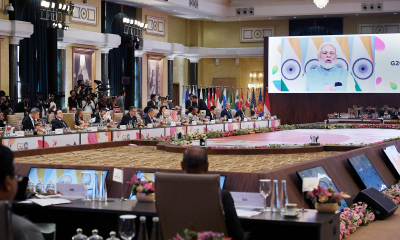
During the recently held Group of Twenty (G20) Foreign Minister’s meeting. Prime Minister Narendra Modi said multilateralism is in crisis today as global governance has failed in preventing wars and upholding international cooperation. Let us learn more about multilateralism.
What is multilateralism?
Multilateralism is the process of organising relations between groups of several states. It is usually associated with the period after the Second World War as numerous multilateral agreements were signed, though led primarily by the U.S. Indivisibility is the core principle of multilateralism. For instance, if a war is declared against a state, then all the states in a multilateral set up are considered to be at war against the opponent.
Multilateralism helps in developing a bond among nations, discourages unilateralism, enables small powers to voice their opinions, and empowers them to exercise their rights.
Organisations embodying the principle of multilateralism include World Health Organisation (WHO), World Trade Organisation (WTO) and North Atlantic Treaty Organisation (NATO). They provide the global framework for peace and stability.
Multilateralism vs. unilateralism vs. bilateralism
The basic difference between unilateralism, bilateralism, and multilateralism is that unilateralism supports one-sided action.
Bilateralism means coordination between two countries, and multilateralism is coordination among more than three countries.
Multilateralism requires states to follow international norms in contrast to unilateralism, where a single state can influence how international relations can be conducted.
Multilateralism vs. multipolarity
Multilateralism is an institutional form that coordinates relations among three or more states on the basis of generalised principles of conduct.
Multipolarity is the system where more than two competing nations have almost equal power and influence on the global economy, society, culture, and military. The concept came about after the Second World War as it became clear that the U.S. would no longer be the single great power globally (during the Cold War it was a bipolar world led by the U.S. and the U.S.S.R).
Picture Credit : Google




